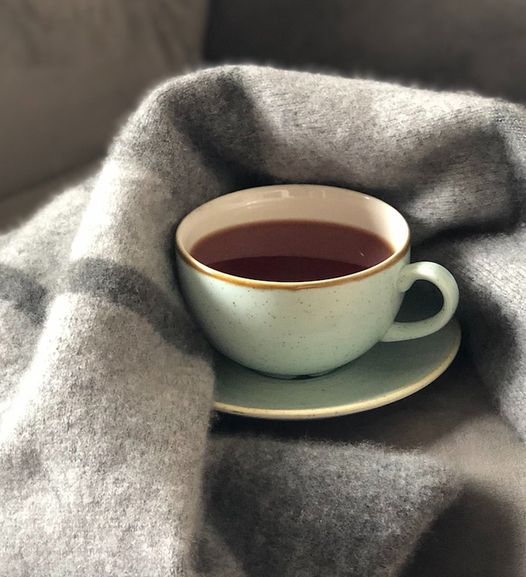
Winter weather brings out the tea drinker in many of us. Even after morning coffee, later in the day to avoid more caffeine, many of us turn to a hot cup of herbal tea. To me, just the idea of a cup of tea in the winter is warming. I’ll share with you my favorite warming herbs for a satisfying cup of winter tea.
Peppermint
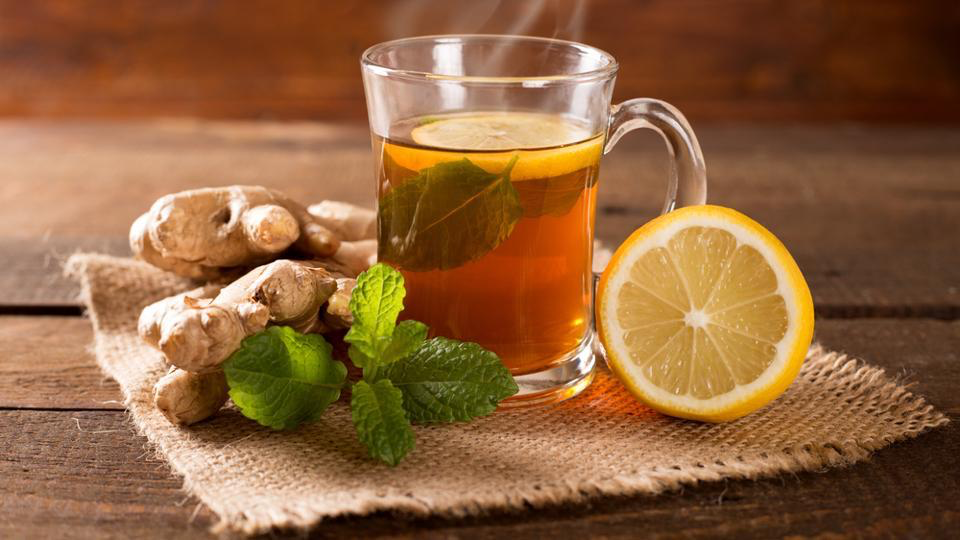
Our house is a rather drafty farmhouse that gets the full brunt of the north wind in the winter. I dress warmly and keep a little electric space heater by my computer to supplement the heat coming from our bigger gas space heater that is in the central room of our house…. not where my computer is.
Today is a cold, cloudy, windy day. The thermometer says 32 degrees F. I just made a pot of peppermint tea, with a little added Holy Basil and some rose petals. Peppermint seems to warm me better than anything else.
Besides being a warming, stimulating herb, peppermint is soothing to the digestive system and contains calcium, potassium and magnesium.
Oddly enough, peppermint is also considered a cooling herb when the weather is hot and sticky- our typical summer condition. I drink it iced in the summer to keep cool, often adding hibiscus and fresh or dried orange peel.
Ginger
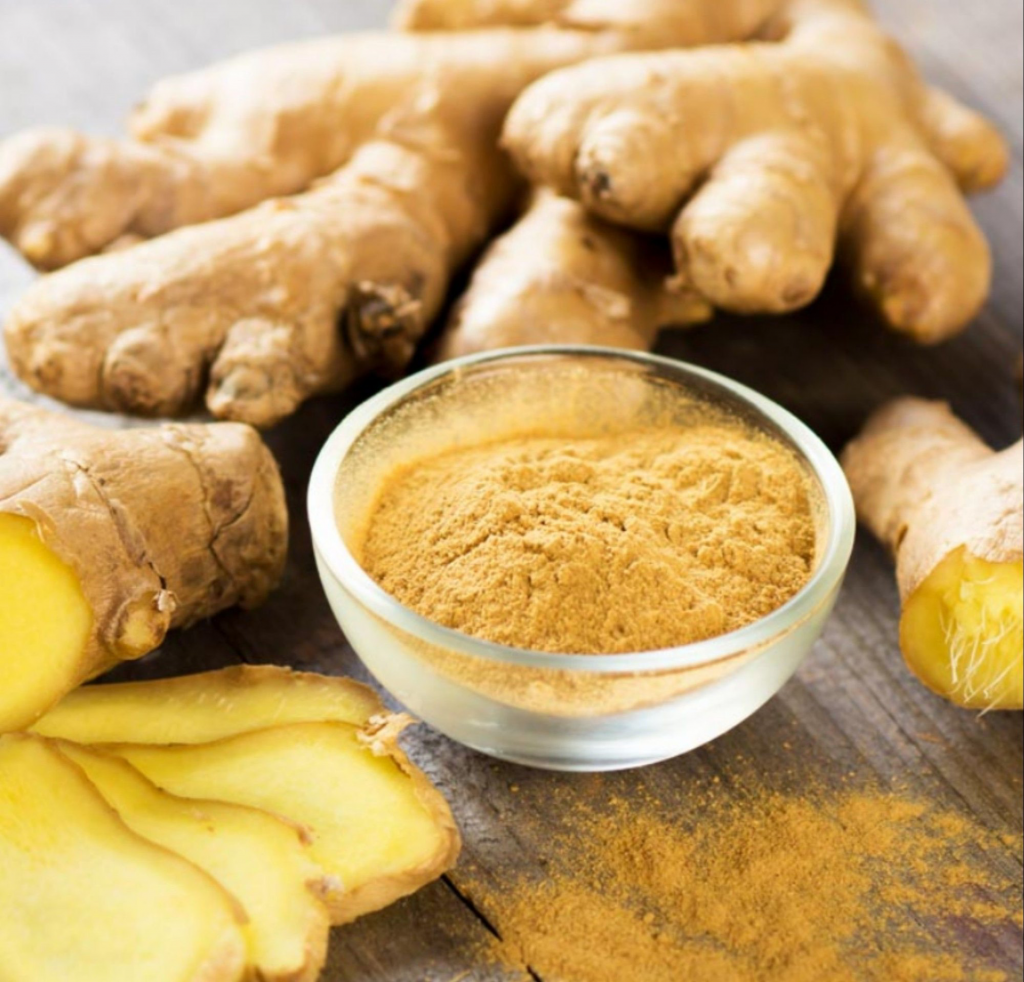
Ginger is well known for its many herbal gifts. It helps calm nausea, is warming and pungent and is used in many recipes for flavor and a little zing.
Ginger tea will definitely warm you up, especially if you make it with the fresh sliced root or even dried chopped pieces. An interesting fact about ginger is if you taste a bit of the fresh root- it is pungent and warm in flavor. Then if you taste a bit of dried root or a little taste of dried, powdered root, it is not only definitely pungent, but also very hot. Go ahead and try it. Just avoid placing the dried root on the tip of your tongue. Take a little of the powder and mix it in a tiny bit of water and taste it that way.
The action that makes ginger so good at warming us up is that it “moves the blood” in a “dispersing” action. When you sip ginger tea the effect of its warmth moves throughout the body. In a topical application, such as in a salve or infused oil, ginger can help reduce the signs of bruising due to its blood moving properties.
Cinnamon
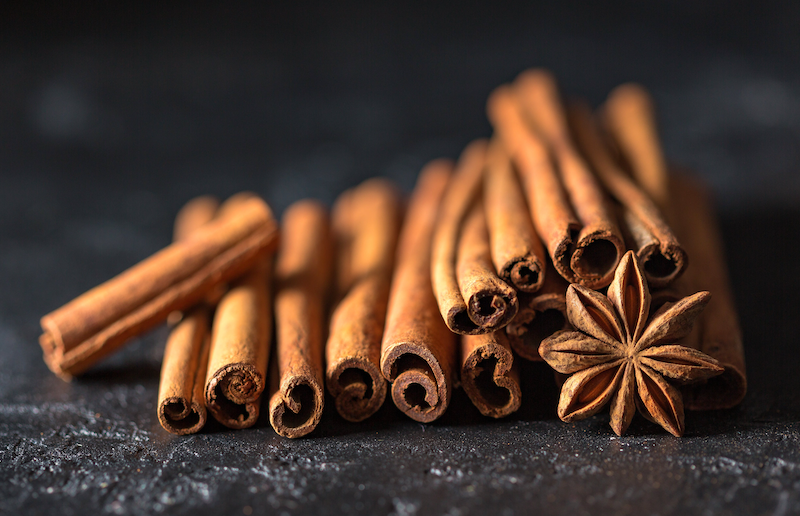
Adding cinnamon to a cup of tea is another way to enhance your tea’s ability to warm you up. Cinnamon works with the circulatory system to send warm comfort to all parts of the body. It is said cinnamon provides encouragement to remain open and accepting of love and community.
You can use powdered cinnamon, broken up cinnamon sticks or cinnamon chips to add the comforting feeling and sensation of cinnamon to your tea.
Rosemary
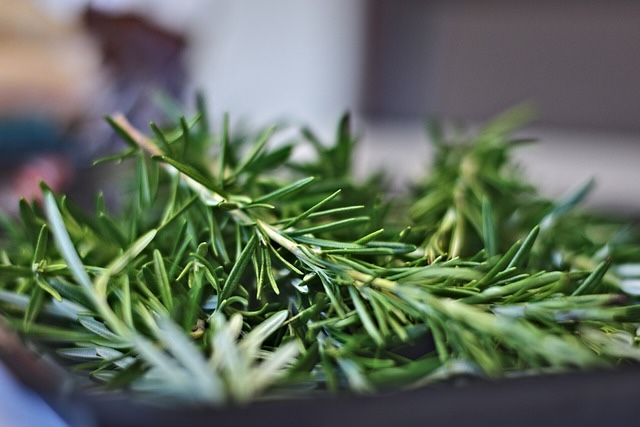
You might find it surprising to find rosemary among our warming herbs. Rosemary promotes good blood circulation and helps bring oxygen to our extremities, such as cold hands and feet. Rosemary also helps eliminate waste and toxins from our bodies. It also may help protect us from infection and some illnesses.
To prepare a standard infusion of rosemary tea, use 1 tbsp fresh or 1 ½ tsp dried rosemary per cup of boiled water. Let it steep about 20 minutes, adding sweetener after you’ve strained out the herbs.
Rosemary is uplifting and clarifying. Inhaling the steam from your cup of rosemary tea will help relieve congestion and support the immune system during times of illness. You won’t regret your cup of rosemary tea.
Other Items of Interest
- Aromatic Herbs & Spices for Gut Health
- The Healing Power of Roses
- Ginger, Herb of the Year 2023
- It’s About Thyme
I hope you stay warm and well this January. Drink lots of tea and be kind to yourself. If you’re out shoveling snow, be safe and try not to hurt your back.
Until next time,
Cindy
| Beautiful young people are accidents of nature, but beautiful old people are works of art. -Eleanor Roosevelt, diplomat and writer (11 Oct 1884-1962) |

